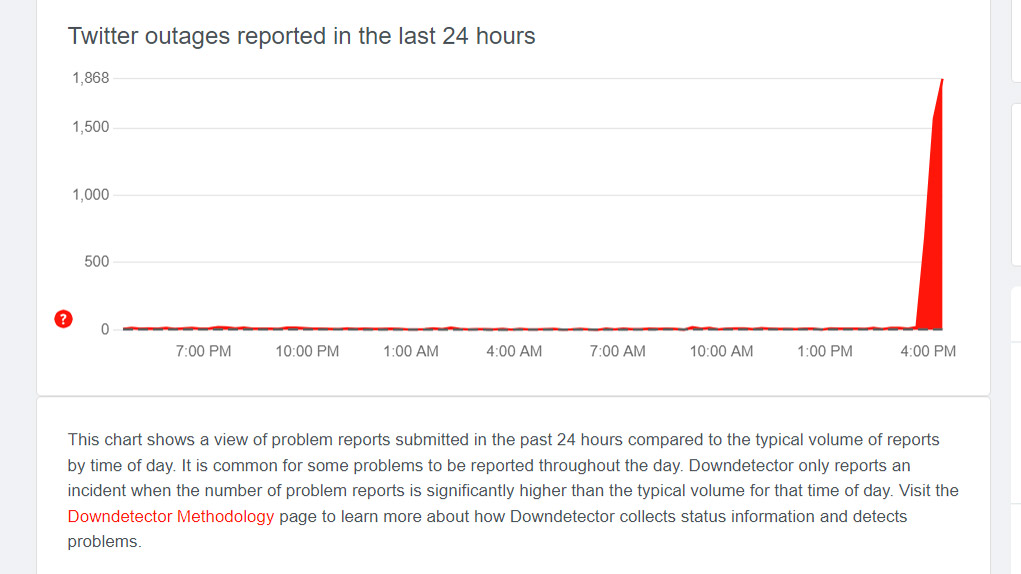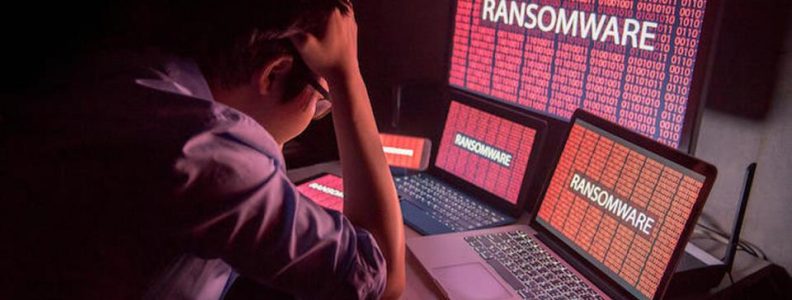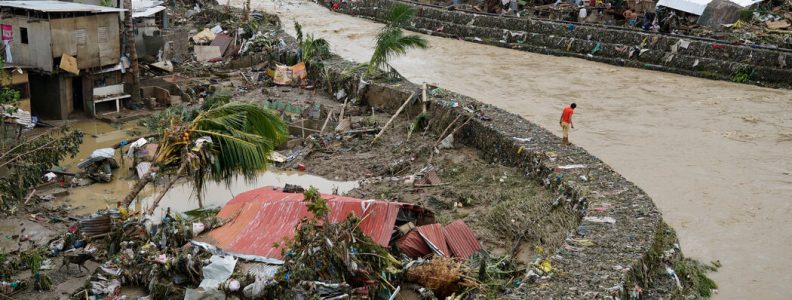

Refresh
Uh oh…
Error reports on the up
The folks over at Downdetector are reporting a huge surge in error reports with Twitter, so this certainly looks to be a relatively widespread issue.

Profile pages the main casualty
Interestingly, the main Twitter feed is working for us, so we can see what people are tweeting, but clicking on any profiles returns the failure to load message.
We’re seeing other Twitter users reporting the issue too.
Twitter is down on my laptop, but okay on my phone. https://t.co/ksJ4vCBj6sFebruary 17, 2022
A global issue
This issue looks to be wide-spread, with reports from users in multiple countries around the world saying they are struggling to access the social network.
There are a variety of different reported issues as well, with some users not able to load profiles on desktop, while others are reporting issues with retweeting, the main feed and individual tweets.
Service being restored
Profile pages are beginning to load for us now, albeit slowly. Twitter may have fixed this one quickly.
Normal service is resumed
Well that was fun. Merry Tweeting, all!
The announcement was a sign that Russia might be trying to de-escalate the military standoff on the Ukrainian border. Although Putin said Russia was “ready to continue on the negotiating track,” it was far from clear that the threat of war had passed.
Source link


The number of internet options available to the average Aussie is getting to the point of being overwhelming, especially if you’re just after a cheap NBN plan.
When shopping around for an internet plan, you’ll notice that most NBN providers offer a six-month discount when you first sign up, and this is a great way to get a cheap deal. An affordable internet plan isn’t always a good one though, particularly if it only comes with a limited amount of data.
To help ensure you get a good internet plan at the best price, we’ve run through our cheap NBN plan recommendations here, or if you want to jump ahead, click the links below:
All of our plan recommendations are detailed below, but before you check them out, here are some good deals you should check out before deciding on an NBN plan:
The lowest-cost NBN plan available
The lowest cost with unlimited data
NBN 12 plans compared
A cheap NBN plan that doesn’t sacrifice speed
NBN 25 plans compared

Best option for most users
NBN 50 plans compared

A bump in speed for larger households
NBN 100 plans compared

For super-fast internet, consider this
NBN 250 plans compared

The fastest you can get, but only available in select locations
NBN 1000 plans compared
If you’re looking for the cheapest options available for the major providers, we’ve outlined them below. While they aren’t as affordable as other budget ISPs, they tend to perform well, and come with optional added perks:

Ransomware is a type of malware that locks a device, encrypts content on the device or web hosting and then blackmails the user to pay a ransom to regain access to its content.
And of course, devices are not just cell phones and computers, they are servers and the Internet of Things (IoT). Therefore, in case of ransomware infection (and non-existent or non-functional backups), the company loses access to, for example, invoices and customers.
This form of attack may temporarily interrupt the company’s work or production process. Depending on the business or organization, the ransomware attack is likely to have consequences for its customers , which may eventually lead them to turn to a competitor.
According to ESET , companies often consider ransomware to be the biggest security problem. However, this is not necessarily because ransomware attacks are more common than other forms of cyber-attack, but because such attacks are often widely publicized.
Thus, even someone who has never experienced an ransomware attack can realize that such cyber attacks pose a serious threat.
The most common way an ransomware attacks a computer is through phishing, in which “suspicious” emails are sent to users, camouflaged in newsletters from banks or other entities, with attachments, url links and text.
In such a case, the ransomware infects the PC the moment the user decides to install the “unknown” program requested! With the installation, the user gives the program permission to gain administrator access and therefore complete control of the device.
* More aggressive hosting programs – such as NotPetya – take advantage of vulnerabilities in the operating system and attack the system without requiring user access.
Files appear as “inaccessible” and can only be restored by providing the decryption key held by the ransomware developer.
Another way of cheating is when the victim receives a notification from a Security Agency (eg Police, Cybercrime Prosecution, etc.) to be fined for violating the law by engaging in illegal online activities, such as the presence of pornographic software, software. etc. In this way, the perpetrators “persuade” the users much easier to repay the price and automatically avoid the alleged denunciation of their action to the Authorities.
In the same context, in order to immediately pay the ransom “hostage” and at the same time to silence this criminal act, the perpetrators resort to the so-called leakware or doxware, in which sensitive personal data of the user is stolen, threatening to be made public, if not the necessary amount is deposited.
Perpetrators usually select their victims, based on the security strength of the system. An educational institution may not have invested time and money in setting up an impregnable security wall for its digital activities, which include a large volume of files and data that are distributed throughout the day.
In addition, organizations that have a large amount of sensitive information – such as government agencies, medical laboratories and pharmaceutical companies, law firms, etc. – in case of “hostage” of their data, they are more likely to mobilize to repay the price, for their immediate security.
While ransomware infection often starts with a click on a suspicious link or fake invoice, ESET has found that email remains the most common method of distribution in a two-step process, with a download program delivered first, followed by ransomware as secondary infection.
It is not clear whether successful ransomware attacks are due to the ability of the attackers or the negligence of employees. Some types of ransomware are highly sophisticated, while others are not.
The risk of ransomware infection is one of the many reasons why companies should focus on educating their employees on cybersecurity so they know what links to click and what to do if they have already done so. some security mistake.
Some companies spend hundreds of thousands or even millions of dollars on various advanced security solutions, but not a few thousand more on well-trained staff who will be responsible for developing and managing network security measures.
Instead, companies often choose to acknowledge that there are security vulnerabilities and make this decision because they do not expect to be attacked by ransomware.
According to ESET, the basic rules you need to follow to avoid data loss are:
However, holistic coverage should be the first goal of any comprehensive cyber security strategy. This starts with a reliable and multi-layered endpoint protection solution , followed by continuous maintenance and best security practices.
The first documented case of ransomware occurred in 1989. It was called the AIDS Trojan and spread through thousands of floppy disks sent by mail. These diskettes reported that they contained a database of AIDS and the risk factors associated with the disease.
In fact, the floppy disks contained malware, which disabled users’ access to much of the contents of the hard disk. The AIDS Trojan demanded a ransom (or, as the message called it, a “license payment”) of $ 189, which was to be sent to a post office box in Panama. Responsible for this ransomware was considered Dr. Joseph Popp.

BELGRADE, Serbia — When Covid-19 reached Eastern Europe in the spring of 2020, a Serbian journalist reported a severe shortage of masks and other protective equipment. She was swiftly arrested, thrown in a windowless cell and charged with inciting panic.
The journalist, Ana Lalic, was quickly released and even got a public apology from the government in what seemed like a small victory against old-style repression by Serbia’s authoritarian president, Aleksandar Vucic.
But Ms. Lalic was then vilified for weeks as a traitor by much of the country’s news media, which has come increasingly under the control of Mr. Vucic and his allies as Serbia adopts tactics favored by Hungary and other states now in retreat from democracy across Europe’s formerly communist eastern fringe.
“For the whole nation, I became a public enemy,” she recalled.
Serbia no longer jails or kills critical journalists, as happened under the rule of Slobodan Milosevic in the 1990s. It now seeks to destroy their credibility and ensure few people see their reports.
The muting of critical voices has greatly helped Mr. Vucic — and also the country’s most well-known athlete, the tennis star Novak Djokovic, whose visa travails in Australia have been portrayed as an intolerable affront to the Serb nation. The few remaining outlets of the independent news media mostly support him but take a more balanced approach.
Across the region, from Poland in the north to Serbia in the south, Eastern Europe has become a fertile ground for new forms of censorship that mostly eschew brute force but deploy gentler yet effective tools to constrict access to critical voices and tilt public opinion — and therefore elections — in favor of those in power.
Television has become so biased in support of Mr. Vucic, according to Zoran Gavrilovic, the executive director of Birodi, an independent monitoring group, that Serbia has “become a big sociological experiment to see just how far media determines opinion and elections.”
Serbia and Hungary — countries in the vanguard of what V-Dem Institute, a Swedish research group, described last year as a “global wave of autocratization” — both hold general elections in April, votes that will test whether media control works.
A recent Birodi survey of news reports on Serbian television found that over a three-month period from September, Mr. Vucic was given more than 44 hours of coverage, 87 percent of it positive, compared with three hours for the main opposition party, 83 percent of which was negative.
Nearly all of the negative coverage of Mr. Vucic appeared on N1, an independent news channel that broadcast Ms. Lalic’s Covid-19 reports. But a bitter war for market share is playing out between the cable provider that hosts N1 — Serbian Broadband, or SBB — and the state-controlled telecommunications company, Telekom Srbija.
Telekom Srbija recently made a move that many saw as an unfair effort to make SBB less attractive to consumers when it snagged from SBB the rights to broadcast English soccer by offering to pay 700 percent more for them.
Telekom Srbija’s offer, nearly $700 million for six seasons, is an astronomical amount for a country with only seven million people — and nearly four times what a media company in Russia, a far bigger market, has agreed to pay the Premier League each season for broadcast rights.
“It is very difficult to compete if you have a competitor that does not really care about profit,” SBB’s chief executive, Milija Zekovic, said in an interview.
Telekom Srbija declined to make its executives available for comment, but in public statements, the company has described its investments in English soccer and elsewhere as driven by commercial concerns, not politics.
“Their goal is to kill SBB,” Dragan Solak, the chairman of SBB’s parent company, United Group, said in an interview in London. “In the Balkans,” he added, “you do not want to be a bleeding shark.”
Eager to stay in the game, Mr. Solak announced this month that a private investment company he controls had bought Southampton FC, an English Premier League soccer team. Broadcast rights for the league will stay with his state-controlled rival, but part of the huge sum it agreed to pay for them will now pass to Mr. Solak.
Government loyalists run Serbia’s five main free-to-air television channels, including the supposedly neutral public broadcaster, RTS. The only television outlets in Serbia that give airtime to the opposition and avoid hagiographic coverage of Mr. Vucic are Mr. Solak’s cable news channel N1, which is affiliated with CNN, and his TV Nova.
Without them, Mr. Solak said, Serbia “will be heading into the dark ages like North Korea.”
Space for critical media has been shrinking across the region, with V-Dem Institute, the Swedish research group, now ranking Serbia, Poland and Hungary among its “top 10 autocratizing countries,” citing “assaults on the judiciary and restrictions on the media and civil society.” Freedom House now classifies Serbia as “partly free.”
In each country, security forces — the primary tools for muzzling critical voices during the communist era — have been replaced in this role by state-controlled and state-dependent companies that exert often irresistible pressure on the news media.
Poland’s governing party, Law and Justice, has turned the country’s public broadcaster, TVP, into a propaganda bullhorn, while a state-run oil company has taken over a string of regional newspapers, though some national print outlets still regularly assail the government.
In December, Law and Justice pushed through legislation that would have squeezed out the only independent television news channel, the American-owned TVN24, but the Polish president, worried about alienating Washington, vetoed the bill.
Hungary has gone further, gathering hundreds of news outlets into a holding company controlled by allies of Prime Minister Viktor Orban. Only one television station with national reach is critical of Mr. Orban and financially independent from his government.
Mr. Orban’s previously divided political rivals have formed a united front to fight elections in April but have been unsuccessful in shaking his stranglehold on the news media.
In Serbia, the media space for critical voices has shrunk so far, said Zoran Sekulic, the founder and editor of FoNet, an independent news agency, that “the level of control, direct and indirect, is like in the 1990s” under Mr. Milosevic, whom Mr. Vucic served as information minister.
Journalists, Mr. Sekulic added, do not get killed anymore, but the system of control endures, only “upgraded and improved” to ensure fawning coverage without brute force.
When United Group started a relatively opposition-friendly newspaper last year, it could not find a printer in Serbia willing to touch it. The newspaper is printed in neighboring Croatia and sent into Serbia.
Dragan Djilas, the leader of Serbia’s main opposition party and formerly a media executive, complained that while Mr. Vucic could talk for hours without interruption on Serbia’s main television channels, opposition politicians appeared mostly only as targets for attack. “I am like an actor in a silent movie,” he said.
N1, the only channel that sometimes lets him talk, is widely watched in Belgrade, the capital, but is blocked in many towns and cities where mayors are members of Mr. Vucic’s party. Even in Belgrade, the cable company that hosts the channel has faced trouble entering new housing projects built by property developers with close ties to the government. A huge new housing area under construction for security officials near Belgrade, for example, has refused to install SBB’s cable, the company said.
Viewers of pro-government channels “live in a parallel universe,” said Zeljko Bodrozic, the president of the Independent Journalists Association of Serbia. Channels like TV Pink, the most popular national station, which features sexually explicit reality shows and long statements by Mr. Vucic, he said, “don’t just indoctrinate, but make people stupid.”
The European Union and the United States have repeatedly rebuked Mr. Vucic over the lack of media pluralism, but, eager to keep Serbia from embracing Russia or stoking unrest in neighboring Bosnia, have not pushed hard.
This has given Mr. Vucic a largely free hand to expand the media control that Rasa Nedeljkov, the program director in Belgrade for the Center for Research, Transparency and Accountability, described as “the skeleton of his whole system.” In some ways, he added, Serbia’s space for critical media is now smaller than it was under Mr. Milosevic, who “didn’t really care about having total control” and left various regional outlets untouched.
“Vucic is now learning from this mistake by Milosevic,” Mr. Nedeljkov said. Mr. Vucic and his allies, Mr. Nedeljkov added, “are not tolerating anything that is different.”
Once powerful independent voices have gradually been co-opted. The radio station B92, which regularly criticized Mr. Milosevic during the Balkan Wars of the 1990s, for example, is now owned by a supporter of Mr. Vucic and mostly parrots the government line.
Journalists and others who upset Mr. Vucic face venomous attacks by tabloid newspapers loyal to the authorities. Mr. Solak, the United Group chairman, for example, has been denounced as “Serbia’s biggest scammer,” a crook gnawing at the country “like scabies” and a traitor working for Serbia’s foreign foes.
Mr. Solak, who lives outside Serbia because of safety concerns, said he had become such a regular target for abuse that when he does not get attacked, “my friends call me and ask: What happened? Are you OK?”


With Christmas looming you probably have things you’d rather be thinking about right now than broadband deals. But if your current contract just came to an end or you’ve noticed that you’re paying through the teeth for a rolling agreement, it’s worth spending a few brief minutes to check out Vodafone’s latest offer.
Sign up to the company’s Superfast 1 plan now, and all you’ll have to pay is a mere £19 per month. Nothing upfront, no delivery or connection charges – just monthly bills of less than £20 to secure average fibre speeds of 38Mb.
That’s a very eye-catching price. But it’s worth knowing that for an extra quid a month, you can upgrade to Vodafone’s Superfast 2 plan and come close to doubling your average connection speeds (stated at 65Mb).
Which you go for will depend on the internet usage in your home. If it’s just you or a couple and you just like to stream the odd Netflix binge and leisurely surf the web, then Superfast 1 may be enough. Superfast 2 will suit large households packed with gamers, streamers, downloaders and home workers – and it’s only £1 a month more for arguably the best fibre broadband deal in the UK.
Loading…

MANILA — The death toll from a powerful typhoon that struck the Philippines last week is continuing to rise as rescuers reach more devastated areas, with more than 140 people now believed to have been killed, officials said on Sunday.
About half of the 142 deaths reported so far from Super Typhoon Rai were in the island province of Bohol in the central Visayas region, a tourist destination known for its diving spots and coral reefs.
The governor of Bohol, Arthur Yap, said that as of noon Sunday, the typhoon was believed to have killed 72 people in the province, a toll based on field reports from community leaders.
“It is very clear that the damage sustained by Bohol is great and all-encompassing,” Mr. Yap said. He said he had seen vast destruction of coastal communities in an aerial survey aboard a military plane.
The Philippines’ national disaster agency, which often takes time to confirm deaths reported by officials around the country, was still reporting a count of 31 deaths from the typhoon on Sunday, a toll that did not reflect the figures provided by Mr. Yap and from other areas.
The central province of Cebu and Cagayan de Oro city on the island of Mindanao were also among the worst-hit areas, and just off Mindanao, officials were trying to get aid to the island of Siargao, a popular surfing destination.
The typhoon made landfall on the island on Thursday, with gusts of up to 168 miles per hour, before tearing west across the country. Rai was classified as a super typhoon after reaching land, a designation comparable to a Category 5 hurricane in the United States.
Siargao was still cut off as of Sunday. Message boards on social media filled up with the names of people who were still unaccounted for.
The typhoon, known as Odette under the Philippines’ separate naming system, was the 15th to hit the country this year. It dumped heavy rain over large areas, and large parts of the central and southern Philippines sustained damage, with many waterways overflowing their banks.
The chairman of the Philippine Red Cross, Senator Richard Gordon, said Rai was one of the strongest storms ever known to have struck the Philippines, which endures an average of 20 typhoons a year.
“Red Cross emergency teams are reporting complete carnage in the coastal areas. Homes, hospitals, schools and community buildings have been ripped to shreds,” he said in a statement. “Our volunteers are providing urgent relief for people who have lost everything, including food, drinking water, first aid, medical care, and somewhere safe to shelter.”
The most powerful storm on record in the Philippines was Super Typhoon Haiyan, which killed about 6,500 people and caused widespread destruction in 2013.
The International Federation of Red Cross and Red Crescent Societies has started an emergency appeal for nearly $22 million to finance relief and recovery efforts for an estimated 400,000 people in the Philippines affected by Rai.
In Bohol, Mr. Yap said that provincial workers were working overtime to restore power and telecommunications facilities, and that many residents did not have access to clean drinking water.
He said a Philippine Navy vessel would ship out from Manila on Monday with emergency aid for Bohol, but he appealed for more help from the national government, citing in particular the need for generators to run water refilling stations across the island.